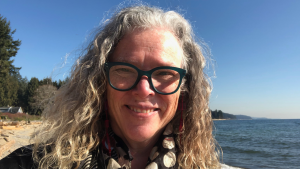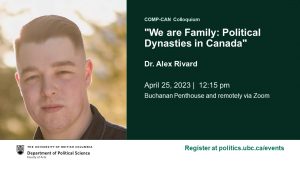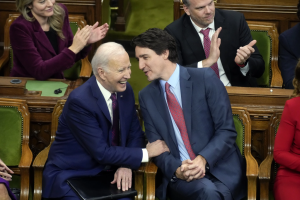Prof. Maxwell Cameron writes about the challenge to Canada’s first-past-the-post electoral system
As the Ontario Superior Court will soon hear a Charter challenge against the first-past-the-post (FPTP) electoral system it should carefully consider how the way we vote affects the separation of powers, says Prof. Maxwell Cameron.
Can we achieve our emissions goals without tensions between the Federal and Provincial Governments? asks Prof. Kathryn Harrison.
Prof. Kathryn Harrison weighed in on the federal government’s proposal to offer investment tax credits to provinces for decarbonizing the country’s electricity grid
The US Senate membership is steadily growing older, but it’s unlikely an age limit will be imposed, says Prof. Paul Quirk
Prof. Paul Quirk thinks it’s unlikely that an age limit would be imposed for U.S. senators, in part because they would have to vote in favour of halting their own participation in Senate life as older adults.
A majority of Canadians think the time has come to move on from the monarchy, says Prof. Emeritus Philip Resnick
Part of the political reticence in Canada around formally breaking with the British monarchy stems from fears that “opening up” the Constitution to do it could be a slippery slope, with provinces demanding constitutional changes on other issues, Prof. Philip Resnick said.
Q&A with Faye Ying, GLOCAL Foundation Founder and Executive Director
UBC Political Science Alumnus Faye Ying answers our questions about her goals, the impact of her time at UBC, her work at GLOCAL: “Innovative problem-solving requires us to be able to connect the dots that we normally consider unrelated.”
Watch: “We are Family: Political Dynasties in Canada” Dr. Alex Rivard
Using a unique dataset of legislators’ electoral and biographic data in the Canadian federal and provincial parliaments, UBC Political Science PhD Graduate Alex Rivard analyzes the extent to which family dynasties affect the career development of legislators since the late 1700s.
Q&A with Bianca Navarro, GLOCAL Foundation Intern
Bianca Navarro, UBC Political Science student, draws on her time with GLOCAL Foundation and what she learned during her internship: “When I see the transformation of Canadian youth from passive recipients to active contributors, it gives me a strong sense of achievement and fulfillment.”
We’re Hiring: Merilees Chair for the Study of Democracy (Professor)
The Department of Political Science invites applications for the Harold and Dorrie Merilees Chair for the Study of Democracy.
UBC Political Science is looking to fill up to two Lecturer positions
The Department of Political Science is seeking to hire up to two full-time Lecturers, who will teach courses at the undergraduate level including Introduction to Politics, other lower-level survey courses, and courses in their field of specialization based on the teaching needs of the Department.
Look out for “subsidies for fossil fuels with green strings attached to them” in spring budget, says Prof. Kathryn Harrison
Prof. Kathryn Harrison was quoted in a National Observer article about potential clean energy investments in the 2023 Canadian spring budget, noting that despite climate change science, “the U.S. and Canadian governments continue to approve new fossil fuel infrastructure.”








